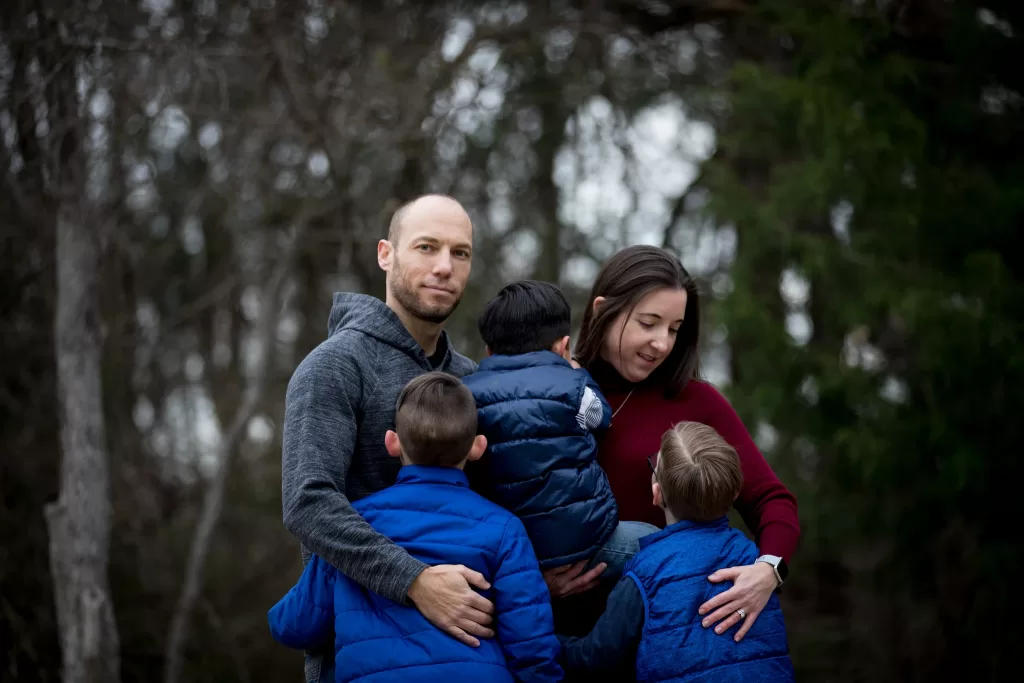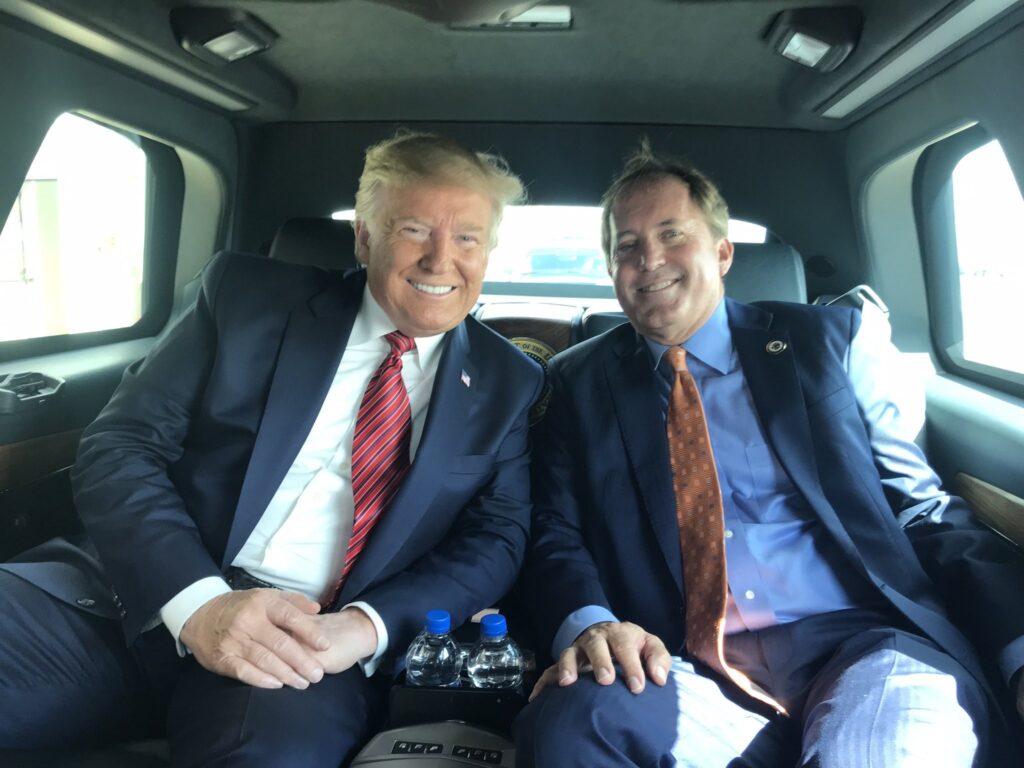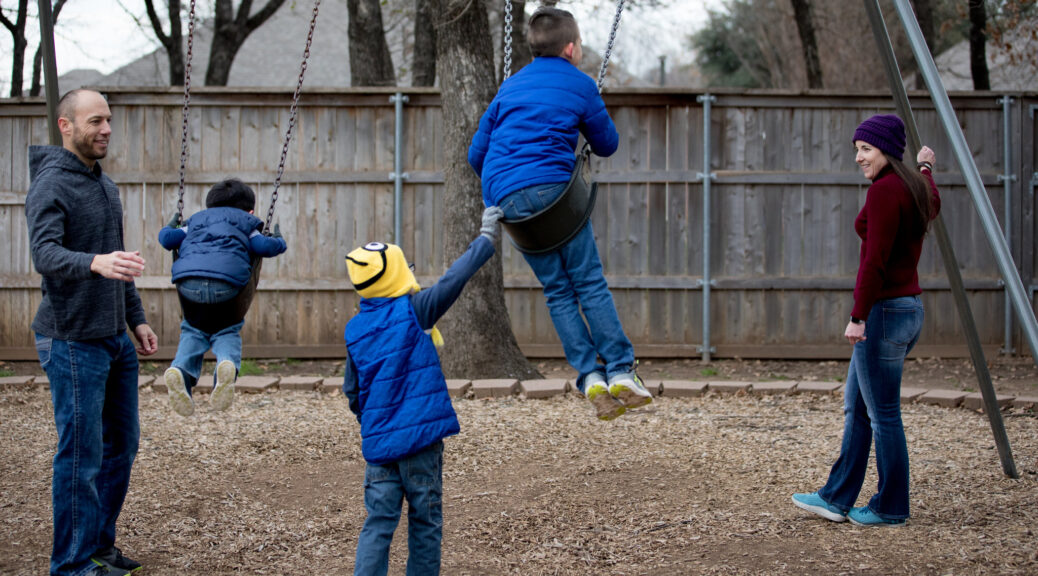The Brackeen case, a legal battle in which the fate of the Indian Child Welfare Act of 1978 hangs in the balance, I fear is precisely the sort of Indian law case for which Justice Clarence Thomas has been waiting. I have thought about this issue a lot lately as I have been listening to Rebecca Nagel’s excellent podcast This Land, which focuses in its second season on the Brackeen case, and reading the petition for a writ of certiorari submitted by the Texas Attorney General in an effort to help get that case before the Supreme Court.
The Supreme Court’s conservative majority has done an immense amount of damage to its own legitimacy owing to its recent voting-rights and abortion decisions. I worry that the Court will take the Brackeen case and deliver a fatal blow not only to ICWA, as the Indian Child Welfare Act is called, but the entire foundations of American Indian Law. That will hurt the Court, but it will hurt Indigenous peoples even more.
Before I explain why that is, we need some background on both ICWA and the so-called “plenary power doctrine” in American Indian law. Both are central to the Texas petition.

By nearly every objective measure, ICWA has been a great success. Congress enacted the ICWA in 1978, an important piece of legislation designed to halt the traumatic removal of native children from their homes through fostering and adoption. The problem was severe.
Dakota Sioux at Spirit Lake, about whom I write in Native America, asked the Association of American Indian Affairs to investigate, and the AAIA reported that of the 1100 Dakotas under the age of 21 who lived at Spirit Lake in 1968, 275 had been removed from their families. In states with large Native American populations, the AAIA found that “child welfare” agencies had removed between 25 and 35 percent of children from their homes. Native peoples organized to halt this highly destructive practice, and the battle for the passage of the ICWA, according to its best historian, “represented one of the most fierce and successful battles for Indian self-determination of the 1970s.” The legislation committed the United States “to protect the best interests of Indian children and to promote the stability and security of Indian tribes and families by the establishment of minimum standards for the removal of Indian children from their families and the placement of such children in foster or adoptive homes which will reflect the unique values of Indian culture.” Native American children, under the legislation, must be placed with family members, with members of their tribe, or with members of another native nation, before they are placed in the care of non-Native American foster parents.

Texas Attorney General Ken Paxton, and a growing number of conservatives, argue that the law has gone too far. “In practice, the ICWA compels states to disregard the ordinary approach of determining a child’s best interest and to treat Native American foster children differently based on nothing more than their race,” Paxton wrote in an editorial that appeared in the Washington Post early in 2019. “The law gives Indian tribes a trump card to play in any state child-welfare proceeding, allowing them to dictate outcomes whenever a child is or even could be a member of a tribe.” For Paxton, it’s a states rights issue. “If no biological family members can be found, the law requires state courts and agencies to make a priority of adoption by other ethnically Native American families.”
“Native American children, strictly because of their race, thus can be kept apart from foster families eager to adopt them. If federal law treated any other class of people this way, it would be roundly condemned, and rightly so. According to the Department of Health and Human Services, 10,529 American Indian/Alaska Native children were in foster care in fiscal 2017.
Some claim that the ICWA relies on a political designation, rather than a racial one, because a tribe is a political entity. But no political or cultural link to a tribe must exist for the Indian Child Welfare Act to apply to a given child. Tribal eligibility — determined in virtually every case by genetic ancestry — is sufficient. The idea that the ICWA relies on a political designation rather than a racial one is further undermined by the fact that if no family from the child’s tribe volunteers to adopt, any Native American from any tribe, anywhere, takes automatic precedence over a non-Native American couple. This requirement relies on racist and reductionist assumptions about the supposed interchangeability of drastically different tribal cultures.
You would not know it from Paxton’s piece, but his opinions are those of a distinct minority. Twenty-one state attorneys-general, along with thirty child welfare organizations, 325 tribal governments and fifty-seven tribal organizations have expressed their support for the Indian Child Welfare Act. The law, they write, “was designed to reverse decades of cultural insensitivity and political bias that had resulted in one-third of all Indian children being forcibly removed by the government from their families, their tribes and their cultural heritage.” The law was a signal achievement, and it has done its job. The ICWA ensures the “stability and cohesion of Tribal families, Tribal communities and Tribal cultures,” in the face or organizations and entities that have sought their destruction.
The Plenary Power Doctrine has emerged over many decades, a product of decisions issued by the United States Supreme Court. It rests at heart upon a long-enduring interpretation of the “Indian Commerce Clause,” Section I, Article 8, which states that Congress has the power to “regulate commerce” with the Indian tribes.
What does that mean? A few words that have been asked to carry a lot of weight. In 1831, Supreme Court Justice John Marshall ruled that Indians were members of “domestic dependent nations” whose relationship to the United States resembled that of a “ward to its guardian.” Congress, he ruled in a related case the next year, had exclusive jurisdiction over Indian affairs, an area of law into which the several states could not intrude. Over time, and over many decisions, the scope of federal power expanded. In 1903, the Court ruled that Congress had plenary power, a power so great that Congress could unilaterally abandon or ignore treaties it had ratified with Native nations. Congress could do whatever it wanted.
Beginning in the second half of the twentieth century, the Court opened the door to increasing state power over native peoples and their lands. Conservatives on the Court have worked consistently to reduce the power of tribal governments. Justice Thomas, it seems to me, has led the way, making the case in a number of decisions over his long tenure on the Court that the plenary power doctrine is unconstitutional.
Why do I feel that way? First, Thomas believes that much of the Court’s jurisprudence on Native American questions lacks constitutional grounding. Indeed, Thomas on more than one occasion has questioned the constitutionality of the “Plenary Power” doctrine.
In the 2004 case of US v. Lara, for instance, Thomas said that he was troubled by the “premises and logic of our tribal sovereignty cases.” Thomas felt that the court had not attempted to remove the important tensions between two assumptions that struck him as contradictory. “First, Congress (rather than some other part of the Federal Government) can regulate virtually every aspect of the tribes without rendering tribal sovereignty a nullity.” It did so, however, while it maintained that “the Indian tribes retain inherent sovereignty to enforce their criminal laws against their own members.”
Thomas could not accept the Court’s assertion “that the Constitution grants Congress plenary power to calibrate the ‘metes and bounds of tribal sovereignty.’” He had read the Constitution and in it, he wrote, “I cannot locate such congressional authority in the Treaty Clause. . . or the Indian Commerce Clause.” The phrase– “commerce”–had been defined too broadly.
Furthermore, Thomas questioned the constitutionality of the 1871 enactment through which Congress put an end to treaty-making, because “the making of treaties, after all, is the one mechanism that the Constitution clearly provides for the Federal Government to interact with sovereigns other than the States.”
Thomas reviewed the Lara reasoning, and that used by the Court in its antecedents: Oliphant, US v. Wheeler (1978), and Duro. He was skeptical. In his conclusion, Thomas wrote,
The Court should admit that it has failed in its quest to find a source of congressional power to adjust tribal sovereignty. Such an acknowledgment might allow the Court to argue the logically antecedent question whether Congress (as opposed to the President) has that power. A cogent answer would serve as the foundation for the analysis of sovereignty issues posed by this case. We might find that the Federal Government cannot regulate the tribes through ordinary domestic legislation and simultaneously maintain that the tribes are sovereigns in any meaningful sense.
In Adoptive Couple v. Baby Girl (2013), Thomas again considered the constitutional basis for plenary power, in another case involving the 1978 Indian Child Welfare Act. “Although the Court has said,” he wrote, “that the central function of the Indian Commerce Clause is to provide Congress with plenary power to legislate in the field of Indian affairs,” neither the text nor the original understandings of the Clause “supports Congress’ claim to ‘plenary’ power.” The contested adoption proceedings at the heart of the Baby Girl case involved neither commerce nor tribes, and Thomas believed that “there is simply no basis for Congress’ assertion of authority over such proceedings.”
Three years later, in the case of US v. Bryant, Thomas once again returned to these questions. Thomas’s Bryant opinion is heavily cited in the Texas petition. Congress’s “purported plenary power over Indian tribes,” Thomas wrote, rests on shaky foundations. “No enumerated power–not Congress’ power to ‘regulate commerce…with Indian tribes,’ not the Senate’s role in approving treaties, nor anything else, gives Congress such sweeping authority.” Thomas found the origins of this claim to power in the 1886 Kagama decision, which upheld the constitutionality of the previous year’s Major Crimes Act. Native American weakness, in that case, justified the extension of federal power. The government’s power, the Kagama court wrote, “over these remnants of a race once powerful, now weak and diminished in numbers, is necessary to their protection… It must exist in that government, because it has never existed anywhere else.” That seemed like a claim to power that was not supported by the Constitution and it was time, in Thomas’s view, to review these decisions.
And in an 2017 dissent in a case involving the Secretary of the Interior’s decision to take 13,000 acres of Oneida land in New York into trust, Thomas again criticized the Court’s Indian Commerce Clause rulings. Allowing the federal government to take land within a state into trust on behalf of an Indian tribe, Thomas argued, could not be supported by any language in the Constitution, and it would have shocked the “Founding Fathers” to “find such a power lurking in a clause they understood to give Congress the limited authority to ‘regulate trade with Indian tribes living beyond state boundaries.”
So in his petition to the Supreme Court, the Texas Attorney General has built upon a foundation ready-made by Justice Thomas. “Relying on the Indian Commerce Clause,” the petition reads, “the Indian Child Welfare Act of 1978 creates a race-based federal child-custody system and requires the states to implement it for all Indian children who appear before their courts.” Relying on a district court ruling that found ICWA unconstitutional, Texas argued that “no provision of the Constitution gives Congress `plenary power’ over Indian affairs.”
Texas wants clarity, it says. It wants to do what’s best for the “most vulnerable among us—children residing in dangerous circumstances.” Rebecca Nagel argues that this case is about far more than children. It’s about an assault on the entire apparatus of federal control over Indian affairs. I think she is right.
Read colonial laws. Read the writings of the royal commissioners who visited Virginia in the wake of Bacon’s race war against all Indians, or the writings of Henry Knox, or the annual reports of the commissioners of Indian Affairs during the second half of the nineteenth century. In all you see an effort by authorities representing the state to control the activities of frontier residents, both Native and newcomer. They blamed frontier whites for frontier violence. The goal of imperial control and then federal control over the conduct of Indian policy always was contested by provincials, by the inhabitants of the territories, and the citizens of the sovereign states. If the Supreme Court chooses to hear the Brackeen case, it could strike down the important Indian Child Welfare Act. It also could, in the process, decide that the plenary power doctrine is unconstitutional. In terms of Indian law, the consequences of this would be earth-shattering.
Think about it this way: what if the Constitution does not give Congress plenary power over Indian affairs? Article I, Section 8 of the Constitution says that “Congress shall have the power to regulate Commerce with foreign nations and among the several states, and with the Indian tribes.” According to constitutional scholar Gregory Ablavsky, the Founding Fathers used the word “intercourse” far more often than they did the word “commerce,” and that this word has a wider range of meanings. There is a lot of truth to that. The first federal Congress, in order to flesh out the sparse language of the Constitution, enacted in the summer of 1790 the first of a series of “Indian Trade and Intercourse Acts.” But look at the legislation. Seriously. Read it. The Indian Trade and Intercourse Act regulated those instances where native peoples and newcomers came into contact by limiting the actions of non-Indians: Americans could not trade with Indians without a license, for instance, and purchases of Indian land could be made only by the national government. In the Indian Trade and Intercourse Act, one could argue that Congress asserted no power to regulate the internal affairs of any native nation.
Maybe plenary power is a lie, a fiction, or a fraud. Maybe Thomas is right, in that the Court, over many years, has just sort of made stuff up to suit its purposes.
I have many friends who spend a great deal of time decrying the so-called “Doctrine of Discovery,” the notion that somehow the Europeans’ discovery of America gave them title to land on this continent. Many of them are calling for a repeal of the doctrine, and for its repudiation by the churches who originally espoused it. Is the notion of “plenary power” any less a fiction? Can it be justified in any way from the sparse language in the Constitution which, Justice Thomas has asserted consistently throughout his career (whatever you think of him), truly matters? Justice Thomas has asserted that the Court’s Indian Commerce Clause rulings are built on a fiction, that they stand without justification in the Constitution’s language.
Perhaps, rather than placing that power in the hands of state governments, as Justice Thomas seems to suggest, it more accurately could be asserted that the Constitution recognized native nations as separate polities, over which it exercised no control and no authority, save for an authority superior to the states to regulate interactions between these native nations and the American people. Congress, rather than the states, could regulate commerce and intercourse by regulating the activities of American citizens, but it could claim no power to do anything within and over native nations themselves, because no such power is stated in the Constitution. If the Doctrine of Discovery is a racist sham, as its critics assert, then perhaps the Congressional plenary power doctrine is a falsehood, too, a misinterpretation of framers’ intent and a complete fiction that the United States ought to address if it wants honor its endorsement several years ago of the UNDRIP. And if it is a fiction, we are left with one conclusion about the federal government’s claim to exercise absolute authority in the realm of Indian affairs: that its claim to plenary power rests on nothing more, at the end of the day, than brute force. Colonialism is alive and well.
These questions will not be addressed in the way I would like if the Court decides to hear the Brackeen’s appeal. And we must keep in mind why Texas is devoting so much energy to combating ICWA. What is in it for Texas? If the court hears the case, and Thomas persuades his colleagues on the Court to follow the logic of his rulings over the years, the Supreme Court could hold that the entire plenary power doctrine is unconstitutional, that under the 10th Amendment, ” powers not delegated to the United States by the Constitution, nor prohibited by it to the states, are reserved to the states respectively, or to the people” and throw the regulation of Native nations over to the states. Their lands, and the mineral wealth that lies beneath, would be subject to state legislatures who seek to skim the cream off of any prosperity that could conceivably come to Indian country. These states could rush to place Native peoples on the same plane as the rest of their citizens, not as members of Indigenous Nations whose existence predates the establishment of the United States, but as individuals untethered and unprotected from tribal governments. And that could be catastrophic for native nations. I hope I am wrong.

